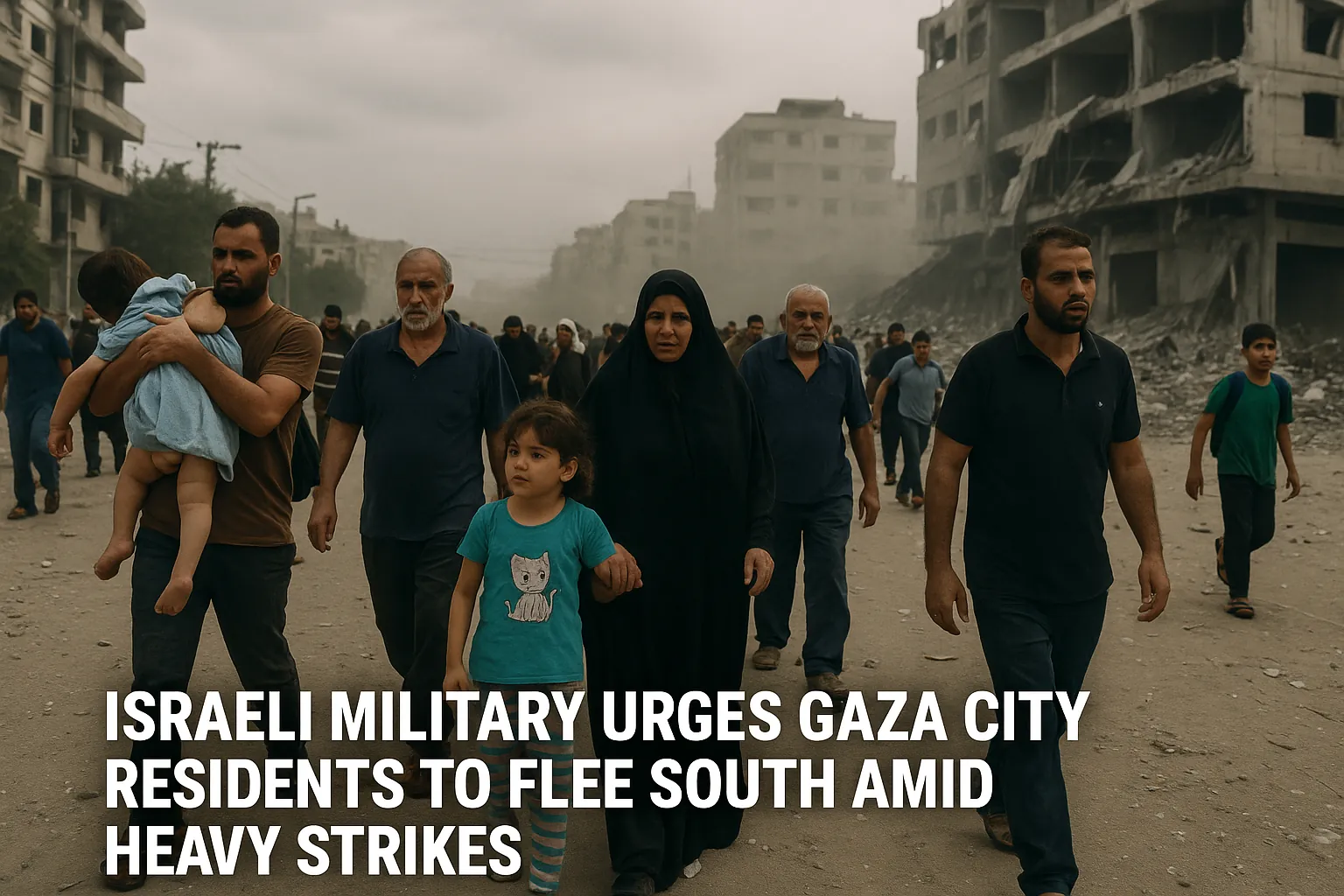The Israeli military has called on Gaza City residents to evacuate southward, warning that ongoing strikes and ground operations make the area unsafe. This is not just another warning in a long war. It is a command that risks uprooting hundreds of thousands of people, many of whom have already endured nearly two years of relentless violence. The order, backed by Prime Minister Benjamin Netanyahu, reveals not only military strategy but also political calculation.
Context: Israel’s order to evacuate Gaza City
According to Reuters, Israeli forces claim to control nearly half of Gaza City, long described as a Hamas stronghold. Airstrikes pound the suburbs, tanks advance through narrow streets, and leaflets and broadcasts urge civilians to head south. The military insists the evacuation is temporary and necessary to protect civilians during combat.
Netanyahu frames the offensive as essential to Israeli security. His government presents the evacuation as humanitarian, suggesting people will be safer outside the battlefield. Yet history tells a different story: in Gaza, “temporary” displacement often becomes permanent exile.
Oppositional Argument: the politics of forced movement
Calling this a protective measure is disingenuous. Forcing Gaza City residents to flee under fire is not safety—it is displacement. This is part of a broader strategy: fragmenting the population, weakening social cohesion, and turning neighborhoods into wastelands. Netanyahu’s decision is not only military; it is political survival, leveraging war to silence critics at home and maintain power.
Israel argues Hamas uses civilians as shields. But that line of reasoning cannot excuse turning an entire city into a warzone. The language of “relocation” masks the reality: civilians face bombardment, starvation, and endless exile.
Analytical Breakdown: strategy, power, and consequence
Why now? Nearly two years into the war, Israel’s government is under internal pressure. The offensive on Gaza City demonstrates strength, both to domestic voters and to international partners. Controlling “half the city” is framed as progress in a war with no clear end.
The consequences are profound. Humanitarian agencies warn that moving hundreds of thousands southward will overwhelm already devastated areas. Infrastructure is collapsing, medical facilities are crippled, and aid cannot reach many zones. Displacement on this scale creates chaos—fueling despair, radicalization, and instability that will spill beyond Gaza.
Netanyahu calculates that military dominance will overshadow humanitarian outrage. But history shows the opposite: the more brutal the offensive, the more isolated Israel becomes diplomatically.
Human Perspective: families in flight
Behind the maps and military briefings are families with no safe place left to go. Many already fled once, abandoning homes destroyed by bombs. Now they are told to move again—toward an uncertain south, where shelters are overcrowded, food is scarce, and water is unsafe.
A mother carrying children, an elderly man left behind, a student forced to abandon books—all become symbols of war’s dehumanizing logic. Telling Gaza City residents to flee is not just strategy. It is collective punishment.
Counterarguments
Proponents argue evacuation saves lives. Without it, more civilians would die in airstrikes. Yet this assumes civilians can escape at all. Roads are cratered, fuel is scarce, and the south is no refuge. Telling people to leave does not absolve responsibility for the bombs that follow them.
Another counterpoint is that Hamas embeds in urban areas, making operations unavoidable. But international law does not vanish in urban warfare. The burden remains on the military to protect civilians—not expel them en masse.
Conclusion: displacement as policy
The Israeli order for Gaza City’s evacuation is not protection—it is displacement as policy. Netanyahu’s war strategy risks turning Gaza into a permanent zone of exile, where civilians are moved like pawns to justify political aims.
The world must decide whether it accepts this normalization of forced flight. If we call this protection today, what will we call tomorrow’s exodus?
External Links
168 views






